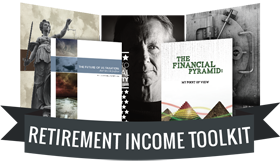1) Put $1,000 aside. It doesn’t amount to a real emergency fund, but it will do until you get your finances in order. You can accumulate the $1,000 by allocating $10 a day for just over three months. Most people go into debt because they live hand to mouth, spending 100% of their take-home pay. Then life happens. Having a mini-emergency fund can help you get out of debt and stay out of debt.
2) Remove yourself from credit card debt-forever. I suggest paying off your credit card by starting with the smallest balance in order to achieve small successes and then working to snowball your payments as you tackle the larger balances. These first two steps, having $1,000 and paying off debt, simply prevent you from facing a financial emergency by starting out wounded and bleeding.
3) Improve your ability to handle fluctuating monthly expenses. If you can, set up a monthly budget so your day-to-day expenses are less than 65% of your take-home pay. The difference between those growing rich and those remaining poor is not the salary they make. It is the salary they keep. Relative to their income, the rich are frugal. They save and invest. They spend less than 65% of their take-home pay on day-to-day expenses. They save at least 10% in their retirement accounts and another 5% in taxable savings. They direct another 10% toward unknown big purchases. And they even live frugally enough to give another generous 10% to charities.
4) Automate your cash flow to promote saving and investing. Every month, have 10% transferred into your retirement account before you receive your paycheck. Then automate the transfer of 25% of your take-home pay into an investment account a day or two after your paycheck is deposited. Automating your savings makes savings a high priority and ensures that you pay yourself first. This investment account will grow over time, and you can use it to pay for big emergencies and charitable gifts.
5) Set up an asset allocation for your investments that’s diversified for safety while being invested for growth. If you make it to this step, you’re well ahead of the game…but the game ain’t over yet! Diversification works, and it’s never more obvious than in times of market turmoil. Without diversification, portfolios can have a zero return over a decade. After being well diversified, the likelihood of no return over a decade drops significantly.
6) (If necessary) Mobilizing during an actual emergency. Having the discipline to budget for small financial emergencies will help you be prepared when you encounter larger financial crises. When some unknown spending need strikes, take the money to cover the expense from your growing emergency fund. Then, determine if you have been budgeting for this level of unknown expenses adequately.
Usually emergencies don’t happen. So the money you have socked away makes more money. Keep an emergency fund for several years and it should double in value, giving you an additional emergency fund. Whether you need it or not, being prepared for a financial emergency means peace of mind, knowing that your lifestyle is frugal, so you won’t be in trouble.
